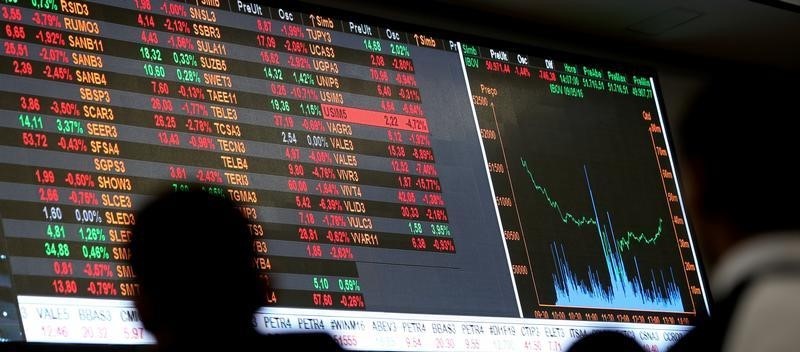By Claire Milhench and Ana Mano
LONDON/SAO PAULO (Reuters) - Eldorado may offer a cautionary tale for investing in Brazilian bonds, yet a 20 percent fall in the pulpmaker's debt since it borrowed $350 million in June has not reduced appetite for the country's corporate credit.
Investors in Eldorado's bonds were caught out by the country-wide corruption probe which spread to the company and its parent firm earlier this month, a setback that typifies the risks of investing in Brazil.
However, fund managers say Brazilian companies, even those with junk ratings, still have a fair chance of raising money.
Once prolific issuers, Brazilian firms have been largely shut out of bond markets for about 18 months, hurt by corruption scandals, weak commodity prices and economic recession.
Now they are exploiting the favorable conditions created by a flood of money into emerging market debt funds.
"Issuers are taking advantage of this to issue at attractive yields, with little new issue premium," Charles de Quinsonas, deputy manager of M&G Emerging Markets Bond Fund, said.
Brazilian companies had raised $14.5 billion in bond markets by the end of August, the Brazilian Financial and Capital Markets Association says. This compares with $7.6 billion in corporate and sovereign issuance for the whole of 2015.
Issuers range from state oil firm Petrobras (SA:PETR4) and meatpacker Marfrig (SA:MRFG3) to pulp and paper firm (SA:SUZB5) Suzano and sugar and ethanol producer Cosan (SA:CSAN3).
And there is more on the way, with logistics provider JSL (SA:JSLG3) and auto leasing firm Ouro Verde - both junk-rated - announcing plans last week for maiden international issues.
Bond buyers may be lured by Brazil's outperformance this year compared with other emerging markets. President Dilma Rousseff's impeachment and signs of long-delayed reforms being undertaken have pulled average yield spreads on Brazilian companies' bonds some 280 basis points (bps) tighter this year.
In contrast, Russia, the other top performer, has seen spreads narrow 120 bps, while the underlying CEMBI index <.JPMCEB> has tightened 95 bps, noted Steve Cook, co-head of emerging debt at Pinebridge Investments.
The fall in yield premia makes it cheaper for bond hopefuls to issue, but also offers value to investors given Brazil's BB/Ba2 credit rating, Cook said.
"Brazil is currently trading around 600 bps, which corresponds to an average single 'B' rating asset class so the market is still pricing in a three- or four-notch downgrade, and arguably you could say that's cheap."
DEBT DANGERS
But as Eldorado's 2021 bond showed, there are risks. Issued at 99.008, it is now trading at around 82 cents in the dollar
Investors have also been spooked by a debt restructuring from phone company Oi (SA:OIBR4) which proposes a 70 percent writedown on the bonds' principal.
One U.S.-based distressed debt fund manager, echoing comments by other investors, said shareholders in Brazil enjoyed significant advantages over creditors, while mechanisms to protect creditors from asset stripping remained weak.
That will keep borrowing rates high for Brazilian firms, the fund manager said. "As more of these bankruptcy processes go sideways, rates will continue to rise. People are waking up to the dangers of dealing with stressed Brazilian situations."
But record inflows to emerging debt funds should support the market. Junk-rated and crisis-mired Ghana, for instance, recently raised $750 million at 9.25 percent. And even last week's U.S. yield spike did not prevent Mexico's Pemex from getting orders for $4.3 billion on its $1.5 billion issue.
Spencer Maclean, head of capital markets for Europe and Americas at Standard Chartered (LON:STAN), said that while Brazilian corporate debt might be too much for funds that don't typically invest in emerging markets, there is enough demand.

"Even if you see just a third of the investors they would have got a few years ago, those will be the dedicated emerging market investors. What you won't get will be the tourists."